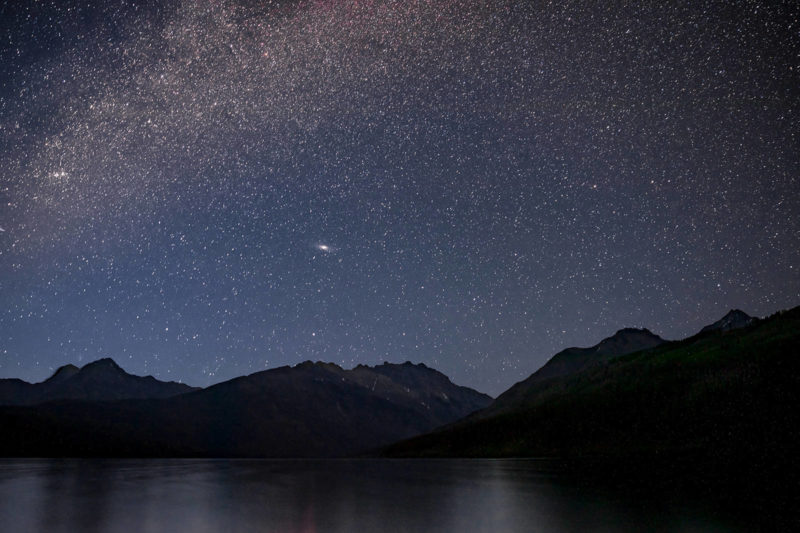Almost every child has wished upon a star or gazed up at those far-off lights dotted about the night sky and wondered. Since we first looked up, the night sky has inspired exploration, art, literature, philosophy, poetry, religious belief and scientific discoveries.
We gaze in wonder at the stars, using them for navigation and for understanding our own place in the cosmos. They seem enduring and unchanging to the naked eye, both a link with a past before the earth’s creation and a window to the future.
But these days, especially if you live in a typical, brightly lit city, the night sky has to compete with man-made light sources of all kinds. Helping preserve our earthly view of the wonders of the universe, the Dark Sky Park initiatives support ecological and human health, reduction of energy waste and provide night-sky viewing opportunities to keep the wonder alive.
READ MORE: Preserving hope and creating peace: Discover the West Coast’s UNESCO World Heritage Sites
This week, another western North American park system earned full certification as an International Dark Sky Park Today.
Waterton Lakes National Park in Alberta and Glacier National Park in Montana were recognized after meeting the International Dark Sky Association outdoor lighting requirements.
Waterton-Glacier International Peace Park “is the world’s first international, transboundary, Dark Sky Park and it shows the world our commitment to protecting the environment, while offering opportunities for visitors to connect with nature, even at night,” says Ron Hallman, President and Chief Executive Officer of Parks Canada.
To achieve this prestigious designation, Waterton-Glacier International Peace Park and the surrounding communities pursued initiatives like installing dark-sky friendly lighting to reduce light pollution. Rather that directing artificial light toward the sky, representing energy inefficiency and waste, dark sky-compliant lighting reduces light’s impact on the night sky by reducing glow and generally directing light downward.
Waterton-Glacier International Dark Sky Park is one of the darkest places on earth, and a prime spot for stargazing. With this certification, Waterton Lakes joins 12 other Parks Canada-administered places with dark sky designations.
“The new Dark Sky Park is the embodiment of the sense that all of humanity shares just one night sky that knows no limit at the international boundaries,” says J. Scott Feierabend, International Dark Sky Association Executive Director.
DID YOU KNOW?
-
Waterton Lakes National Park and Glacier National Park now hold four joint designations: International Peace Park, Biosphere Reserve and World Heritage Site, and the first transboundary IDA International Dark Sky Park.











 Hiking through history: Exploring Second World War landmarks on Vancouver Island’s west coast
Hiking through history: Exploring Second World War landmarks on Vancouver Island’s west coast